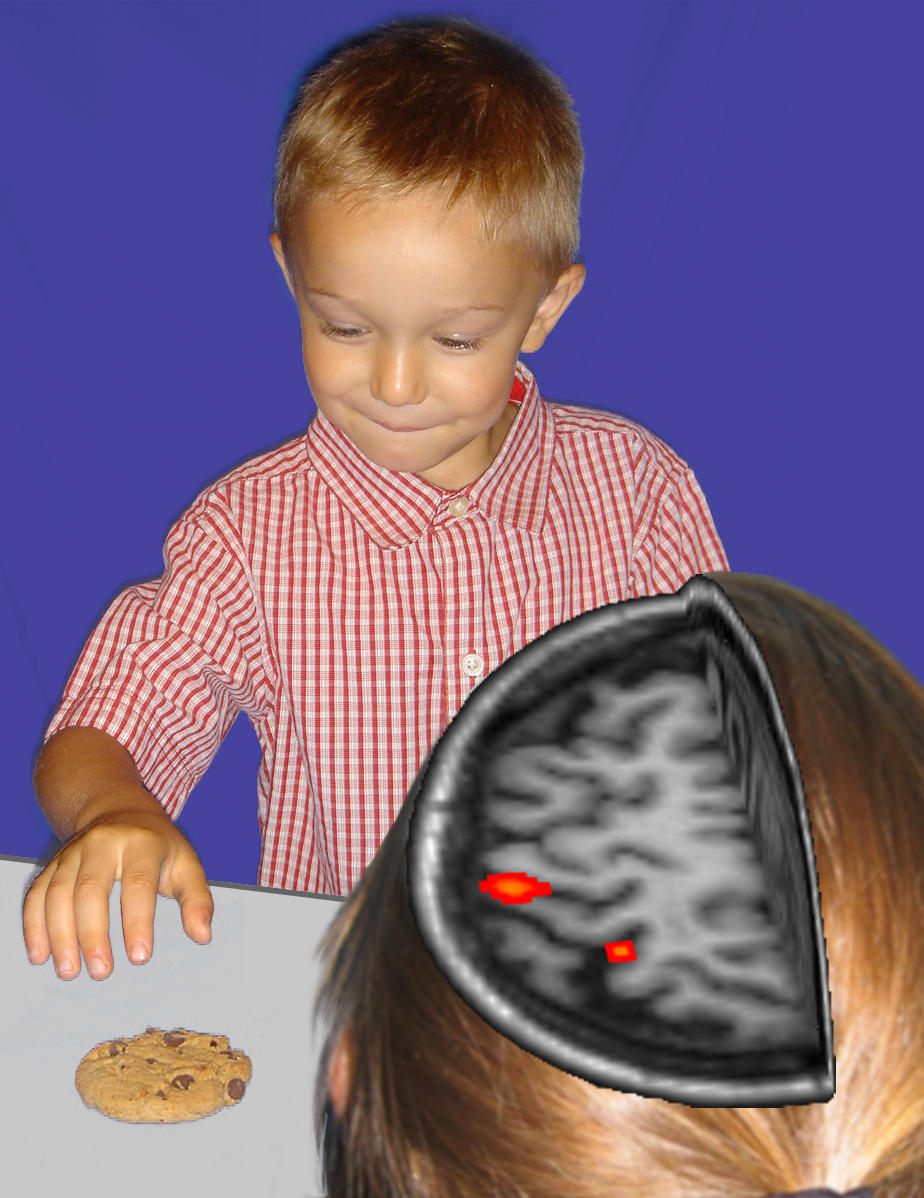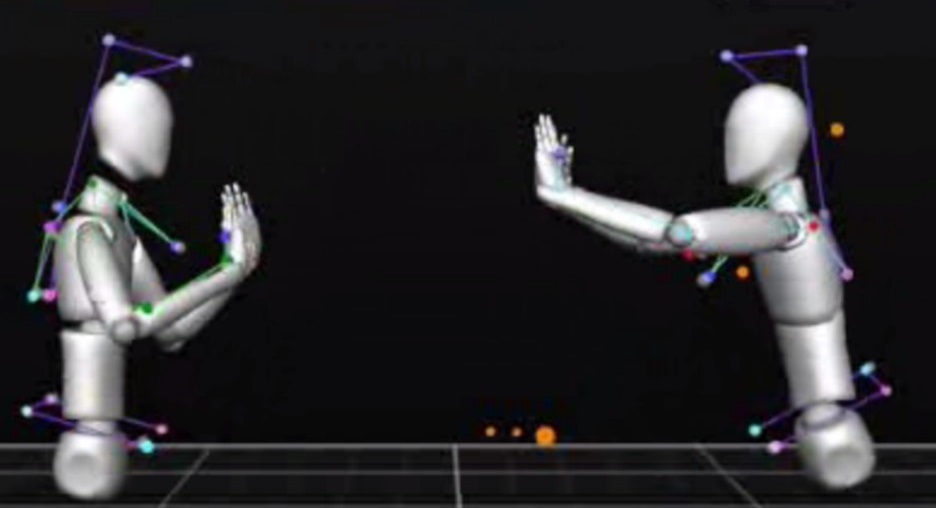 Antonia Hamilton's lab for Social Cognition
Antonia Hamilton's lab for Social Cognition
 Current Research
Current Research
In all our everyday interactions with other people, we watch their movements and rapidly decide how best to respond. Is that child going to knock over the water glass? Should I copy how the teacher moves her pen? Does the person at the bar like looking at me?
The Hamilton lab aims to uncover the cognitive and brain mechanisms which allow us to make sense of other people's everyday actions and interact appropriately. We also test if these systems differ in people with autism.
Social interaction is critical to our everyday lives. A better scientific theory of how we understand and respond to other people will have benefits for many fields, including
- helping children who struggle with social interaction (e.g. children with autism)
- understanding the origins of friendship and how people can build stronger social connections
- understanding the fundamentals of communication and learning in live interactions
Topics we are currently studying include:
Understanding the mechanisms of social bonding
People with strong social connections lead longer healthier lives, but we know little about how social connections get started and why some friendships work. This project will use fNIRS hyperscanning and wearable sensing in detailed studies of small-group and large-group social interactions, in order to reveal the neural, behavioural and cognitive systems that support emerging friendships in young adults. This work is funded by the ERC

Understanding face-to-face social interaction
Using motion capture and wearable brain imaging, it is now possible to record in detail how people move and behave during natural interactions, as well as how and why their brains might be in sync. These studies explore how pairs of people learn from each other, decieve each other and communicate.
Further reading: Pan & Hamilton 2018, De Felice et al, 2024, Hamilton, 2020
Social neuroscience outside the lab
functional near-infrared spectroscopy is an emerging brain imaging method which allows us to record cortical activity while participants walk, talk and engage in social tasks. This opens up new avenues to understand the neural mechanimss of real world social interactions and to conduct research outside traditional lab contexts. For example, we are studying how actors perform on stage in the theatre and how people present themselves in front of an audience. This work is in collaboration with Ilias Tachtsidis and Shimadzu Europe, with funding from UBEL-DTP.
Further reading: Pinti et al 2016, Burgess et al, 2022
Large group interactions
Using new wearable sensors, it is now possible to collect data on the behaviour of large groups of people as they interact outside the lab, for example a theatre audience or children in lessons at school. These methods open the way to new types of analysis of social connection and social learning.
Further reading: Ward et al, 2024 Sun et al, 2023
Taking perspectives
Imagining what another person can see and considering what that person believes are critical components of 'theory of mind'. We are using traditional experiments, virtual reality and brain imaging to understand the relationship theory of mind, perspective taking and action observation.
Further reading: Ye, Furumi, da Silva & Hamilton 2021 Pearson et al, 2013
Social interaction in autism
Autism is a neurodevelopmental condition affecting social and communication skills. However, it is not yet known which aspects of social interaction are difficult for people with autism or why. We are currently using behavioural and neuroimaging methods to explore these ideas.
Further reading: Bottein & Hamilton, 2024 Forbes et al 2016
Data sharing
In accordance with funding guidelines, published anonymised data collected in the Hamilton lab is available to other researchers for secondary analysis. Available datasets are described in our publications. To access data, please email me with details of the dataset you want and why. Access to some data (e.g. video) may be limited by issues of partipant confidentiality.
Institute of Cognitive Neuroscience, University College London, Alexandra House, 17 Queen Square, London, WC1N 3AR a.hamilton - at - ucl.ac.uk